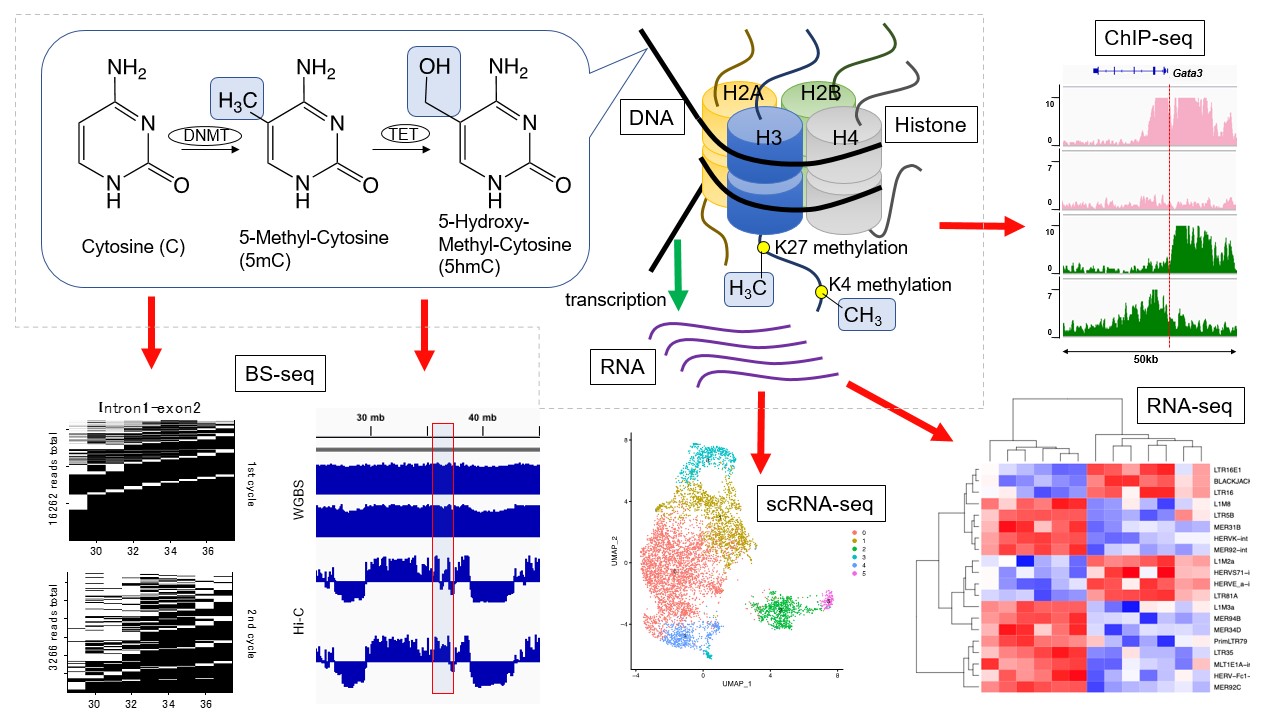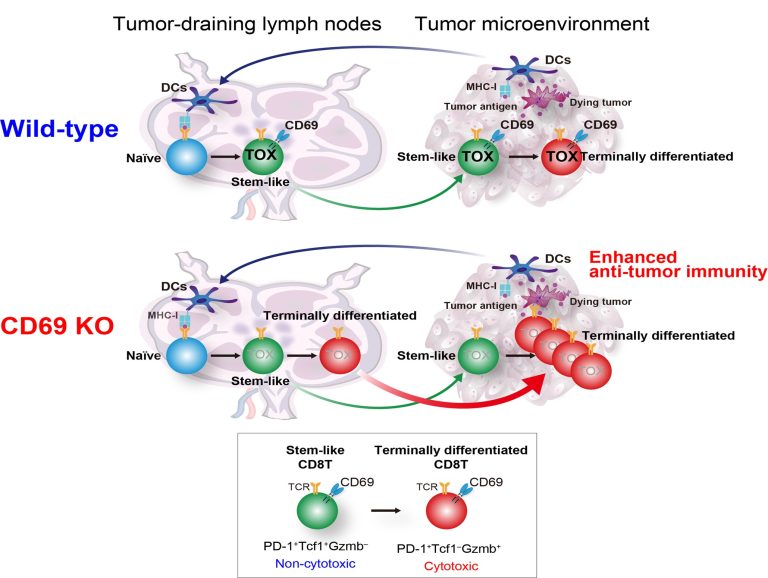
-
Atsushi ONODERA
Researchmap
ProfessorChiba University Institute for Advanced Academic Research / Graduate School of Medicine / Research Institute of Disaster Medicine
Keywords
Polycomb, Trithorax, TET enzymes, DNA methylation, Histone modifications, T cells, Epigenetics, Development and differentiation, Immune memory, Allergy and asthma, Regulation of transcription, Inflammatory diseases, Antigen response, Next-generation sequencing, Third-generation sequencing, Macrophages
Professional Memberships
Japanese Society for Immunology, The Japanese Society for Epigenetics
Research Theme
Epigenetic Modifications by Methyl Groups in Health and Disease

Abstract
The genome is the blueprint of life.
The "which part" of the genome is read differs in each cell, and the addition or deletion of the methyl group CH3- (just four atoms), plays an important role in reading the genome.
This mechanism is known as epigenetic modification, and the development of next-generation sequencing technology has greatly contributed to this research field.
Epigenetic modifications by methyl groups can be classified into two types: (1) methylation of histones and (2) methylation of DNA cytosines.
Our previous research showed that histone methylations regulated by the Polycomb and Trithorax group proteins are essential for immune responses, particularly those mediated by T cells.
In addition, our recent international collaborative study revealed that TET enzymes, which convert methyl-cytosine into hydroxymethyl-cytosine, inhibit inflammation and tumor development in mice and humans.
Currently, our study focuses on the relationship between age-related epigenetic abnormalities and immune diseases, which has received much attention in recent years.
The final goal of my research is to solve the mysteries of life and ultimately control diseases by concentrating our wisdom on physics, chemistry, and mathematics.


